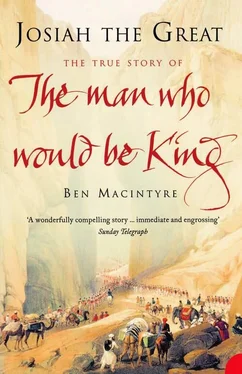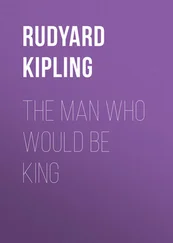JOSIAH THE GREAT
The True Story of the Man Who Would Be King
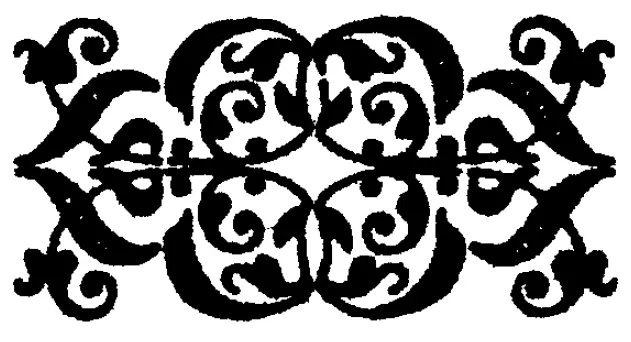
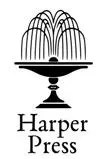
Harper Press
An imprint of HarperCollins Publishers 1 London Bridge Street London SE1 9GF
First published in 2004 by HarperCollins Publishers
Copyright © Ben Macintyre 2004
Q and A with Ben Macintyre/A Conqueror Gone Native © Sarah Vine 2005
PS™ is a trademark of HarperCollins Publishers Ltd
Ben Macintyre asserts the moral right to be identified as the author of this work
A catalogue record for this book is available from the British Library
All rights reserved under International and Pan-American Copyright Conventions. By payment of the required fees, you have been granted the non-exclusive, non-transferable right to access and read the text of this e-book on-screen. No part of this text may be reproduced, transmitted, downloaded, decompiled, reverse engineered, or stored in or introduced into any information storage and retrieval system, in any form or by any means, whether electronic or mechanical, now known or hereinafter invented, without the express written permission of HarperCollins e-books.
Source ISBN: 9780007151073
Ebook Edition © JULY 2010 ISBN: 9780007406852
Version: 2015-10-20
For automatic updates on Ben Macintyre visit harperperennial.co.uk and register for AuthorTracker.
‘Harlan is a fascinating figure, and Macintyre brings him magnificently back to life in a portrait that carries complete conviction. Josiah the Great is perhaps his most accomplished book: as compelling as it is humorous, thoughtful and well written … Ben Macintyre has succeeded in adding a completely new chapter to the tale, and one overlooked by all previous writers’
WILLIAM DALRYMPLE, Times Literary Supplement
‘The saga of the first Afghan war, one of the greatest disasters ever met by the British army, has been told many times before … But Ben Macintyre has found a wholly original angle on it. A riveting book and a valuable contribution to Great Game literature’
MATTHEW LEEMING, Spectator
‘With Afghanistan already long gone from the headlines, Ben Macintyre provides a timely historical reminder of the perils of messing about in foreign lands. The entertainingly improbable Josiah the Great is the ultimate in exotic’
JUSTIN MAROZZI
‘Ben Macintyre has extricated [Harlan] from obscurity, in a book as compelling as its subject’
Daily Mail
‘Ben Macintyre tells a wonderfully compelling story. Like so many of the best biographers Macintyre has fleshed out a figure who merits only a meagre index-entry in most histories but whose experience helps to bring to life an entire period’
PHILIP MARSDEN, Sunday Telegraph
For Barney, Finn and Molly
If I want a crown I must go hunt it for myself.
RUDYARD KIPLING, ‘The Man who Would be King’
Cover Page
Title Page
Copyright
Praise
Epigraph
Maps
PREFACE
PROLOGUE
1 A Company Wallah
2 The Quaker King-Maker
3 My Sword is My Passport
4 The Young Alexander
5 The Dervish From Chester County
6 From Peshwar To Kabul
7 Kabul, Conspiracy And Cholera
8 The Alchemist
9 Courtier Of Lahore
10 The Maharajah’s Ambassador
11 The King’s Nearest Friend
12 The Prince Of Ghor
13 Prometheus From Pennsylvania
14 A Grand Promenade
15 Camel Connoisseur And Grape Agent
16 Harlan’s Last Stand
EPILOGUE KABUL, SEPTEMBER 2002
A Note on Sources and Style
Notes
Keep Reading
Select Bibliography
Index
P.S.
About the author
Q & A with Ben Macintyre
LIFE at a Glance
Ten Favourite Books
About the book
A Critical Eye
A Conqueror Gone Native
Read on
Have You Read?
If You Loved This, You’ll Like…
Find Out More
Acknowledgements
About the Author
Also by the Author
About the Publisher
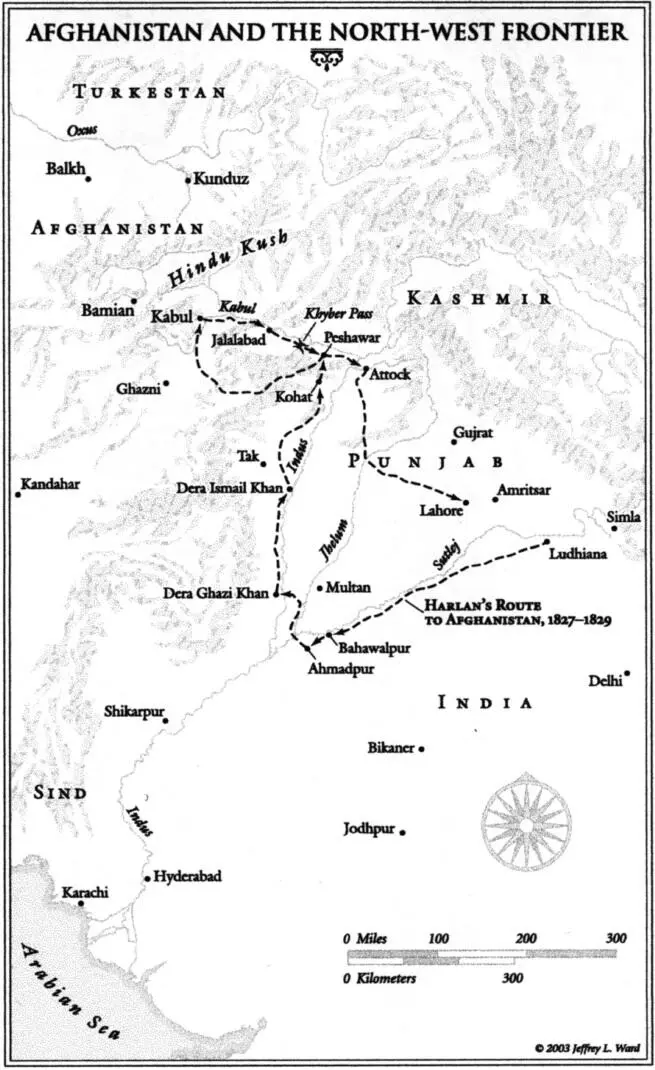
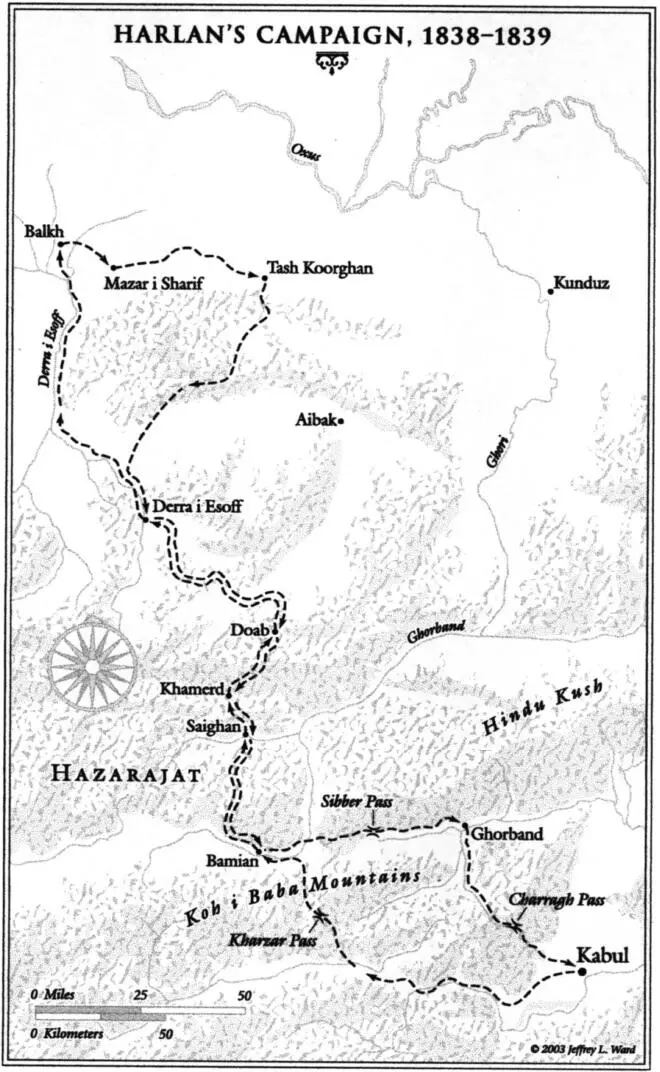
In the winter of 1839 a conqueror, enthroned on a large bull elephant, raised his standard in the wild mountains of the Hindu Kush. His soldiers cheered, fired matchlock rifles into the air, and beat swords against their hide shields. Two thousand native horsemen shouted their loyalty, each in his own tongue: Afghan Pathans, Persian Qizilbash, Hindus, Uzbeks, Tajiks and Hazaras of the highlands, descendants of the Mongol horde. Six cannon roared to salute the flag, the echoes ricocheting across the snowy pinnacles.
The commander reviewed his troops with satisfaction. Although he was not yet forty, the face above the long black beard was as rugged as the landscape around it. Beneath a flowing fox-fur cloak he wore robes of maroon and green satin, a girdle of silver and lace, and a great silver buckle in the shape of a soldier’s breastplate. His catskin cap was circled with gold.
Like Alexander of Macedon, who had led his army on the same mountain path twenty-one centuries earlier, the leader was called great by his followers, and his titles, past, present and future, were many: Prince of Ghor, Paramount Chief of the Hazarajat, Lord of Kurram, governor of Jasrota and Gujrat, personal surgeon to Maharajah Ranjit Singh of the Five Rivers, the Highly Stationed One equipped with Ardour and Might, Chief of the mighty Khans, Paragon of the Magnificent Grandees, Holy Sahib Zader, Companion of the Imperial Stirrup, Nearest Friend of Shah Shujah al-Moolk, King of Afghanistan, Chief Sirdar and Commandant of the invincible armies of Dost Mohammed Khan, mighty Amir of Kabul, Pearl of the Ages and Commander of the Faithful. Hallan Sahib Bahadur, victor of the battle of Jamrud, slayer of infidel Sikhs, scourge of Uzbek slavers, was even said to have magical powers. Some claimed that he was an expert alchemist who had forged a priceless talisman to make the dumb speak and conjured gold from base metal, a teller of stories in every tongue, and master in the art of intrigue. In his own language, the prince was known by other names: doctor, soldier, spy, botanist, naturalist and poet; but also mercenary, even mountebank.
His Highness never travelled without his books, and when the guard had been posted for the night and the mastiffs howled to ward off the wolf packs in the ravines, he retired to his tent and wrote, tumbling torrents of words in a language none but he could read. In his journal he recorded: ‘I unfurled my country’s banner to the breeze, under a salute of twenty-six guns, and the star-spangled banner gracefully waved amidst the icy peaks, seemingly sacred to the solitude of an undisturbed eternity.’
For His Highness Hallan Sahib had another name, and another title: Josiah Harlan, Quaker, of Chester County, Pennsylvania.
Читать дальше
